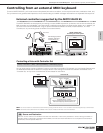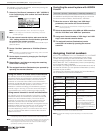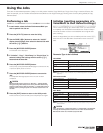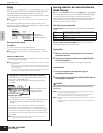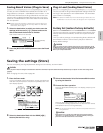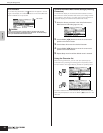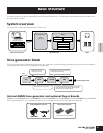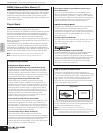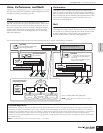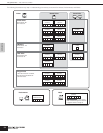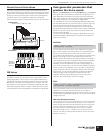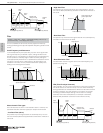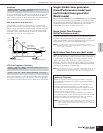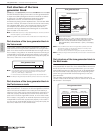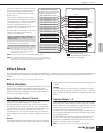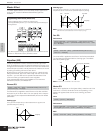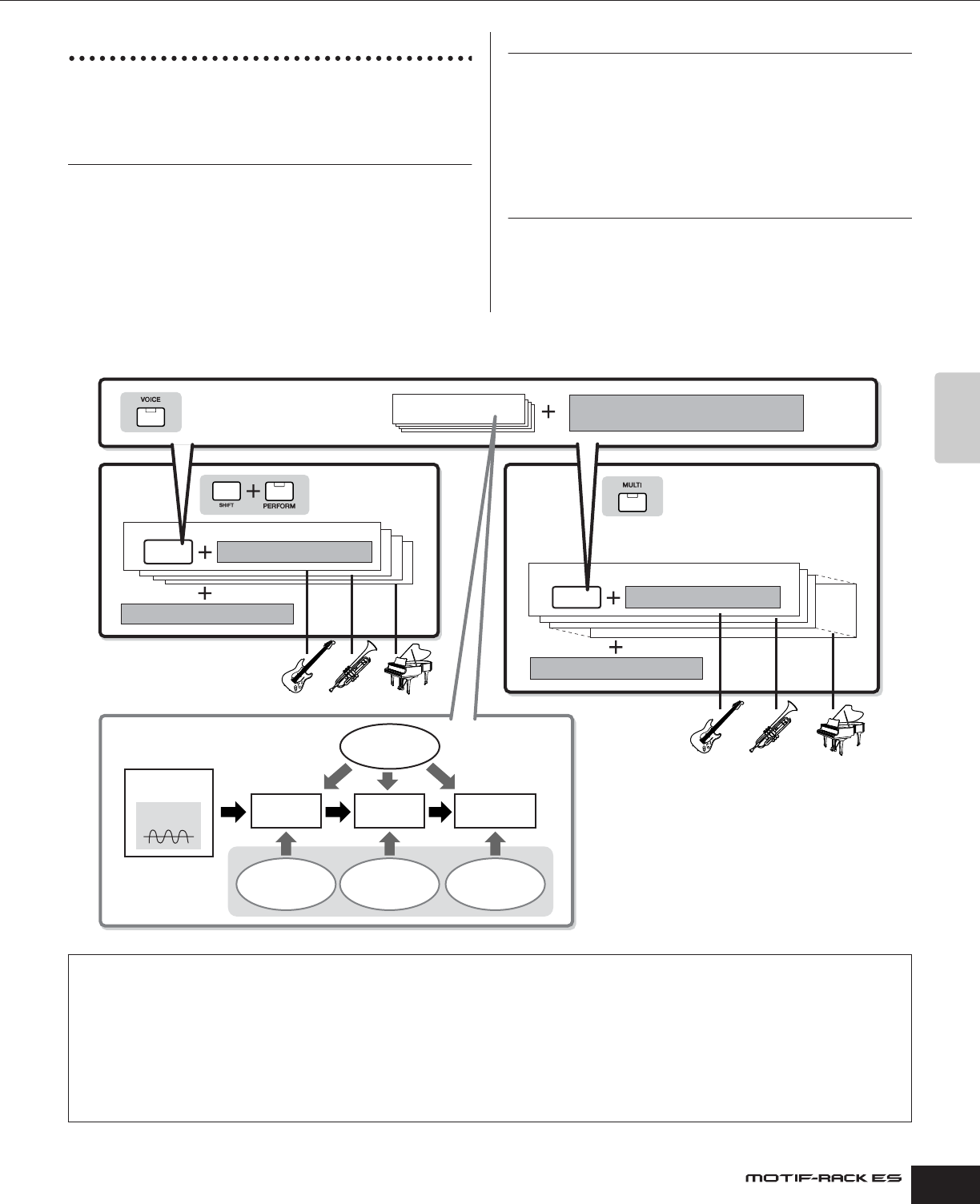
Owner’s Manual
Tone generator block Voice, Performance, and Multi
53
Basic Structure
Voice, Performance, and Multi
This instrument features three different types of programs that form
the basis for creating and playing sounds.
Voice
A program that contains the sonic Elements for generating a
specific musical instrument sound is referred to as a “Voice.” Each
Voice consists of up to four Elements (Normal Voice) or up to 73
keys (Drum Voice). Each Voice is created by editing parameters
unique to each Element/key and parameters common to all the
Elements/keys in the Voice mode (page 25) or in the Multi Voice
Edit mode (page 83).
Performance
A program in which multiple Voices (Parts) are combined in a
layer, or in other configurations is referred to as a “Performance.”
Each Performance can contain up to four different Parts (Voices).
Each Performance can be created by editing parameters unique
to each Part and parameters common to all the Parts in the
Performance mode (page 33).
Multi
A program in which multiple Voices are assigned to Parts for multi-
timbral play in the Multi mode is referred to as a “Multi.” Each Multi
can contain up to 33 Parts (page 58). Each Multi can be created
by editing parameters unique to each Part and parameters
common to all the Parts in the Multi mode (page 39).
The illustration below shows the structure and interrelationship of the Voices, Performances, and Multis.
Keyboard Mega Voices
Normal Voices use velocity switching to make the sound quality and/or level of a Voice change according to how strongly or softly you play it.
This makes the Voices sound authentic and natural. However, with Keyboard Mega Voices, each velocity range (the measure of your playing
strength) has a completely different sound. For example, a guitar Voice includes the sounds of various performance techniques. In conventional
instruments, different Voices having those sounds would be called up via MIDI and played in combination to achieve the desired effect.
However, now with Keyboard Mega Voices, a convincing guitar Part can be played with just a single Voice, using specific velocity values to play
the desired sounds.
n The Keyboard Mega Voice names are indicated as “Mega **” in the display.
CH16
CH1
EG
PITCH
OSC
FILTER
AMP
LFO
PEG FEG
AEG
n The Drum Voice Key Edit parameters do not contain
LFO settings.
One Voice
Up to four Elements (Normal Voice)
Up to 73 keys (Drum Voice)
Element 1-4 or Key C0-C6
Common Edit parameters
Arpeggio, Effects, Controller Set, etc.
One Performance
Up to four Parts
Part Edit parameters
One Part
Voice
Common Edit parameters
One Multi
•1 - 16 Parts (of the internal tone generator)
• 17 - 32 Parts (of the optionally installed
PLG100-XG)
• PLG1 - 2 Parts (of the optionally installed
Single-part Plug-in Boards)
Part Edit parameters
One Part
Voice
Common Edit parameters
Different Voice for each Part
Different Voice for each Part
(Oscillator)
Waveform
(AWM)
Pitch Envelope
Generator
Filter Envelope
Generator
Amplitude Envelope
Generator
Low Frequency
Oscillator
(Amplitude)
Element Edit parameters
or Key Edit parameters
Set in the Voice Edit mode (page 25)



